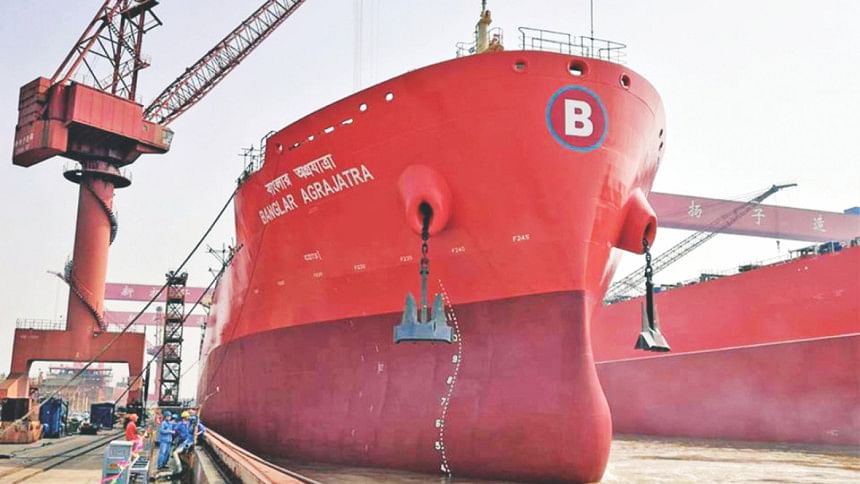Shipping Corporation gets Tk 300cr tax breaks on vessel import

The National Board of Revenue yesterday handed out value-added tax exemptions of about Tk 300 crore to the state-run Bangladesh Shipping Corporation (BSC) for import of six vessels, which will be used to carry cargoes in international waters.
The benefit comes with the view to strengthening the capacity of the shipping corporation and enabling the sector to grow as a whole, according to Tariq Hassan, second secretary for VAT policy at the NBR.
With the six vessels, the total number of ships that have got VAT exemption on import goes up to 10.
The NBR introduced the VAT exemption benefit for import of up to 22-year-old vessels in June to give a boost to the domestic shipping sector such that the ships can carry more cargoes and secure a higher share of the $8-9 billion freight charge that Bangladeshi businesses annually spend to export and import goods. Local oceangoing vessels can tap only 2 percent of the freight charge due to a dearth of vessels, according to sector operators.
“This will save the foreign currency we have to spend as freight for export and import,” Hassan said.
Of the six ships, three are bulk carriers, each with 38,894 deadweight tonnage (DWT) capacity.
The remaining three are oil tankers with a capacity of 39,000 DWT each, meaning that the BSC will be able to transport the same volume of crude oil, according to the letter issued to the BSC by the NBR. The six ships will take the state corporation's fleet to eight from only two at present.
The existing two vessels, which were bought 27 years ago, are oil tankers with capacity of nearly 15,000 DWT each, said Mohammad Yousuf, project director for procurement of the vessels.
BSC bought the six ships for over Tk 1,843 crore from the China National Machinery Import and Export Corporation.
Of the amount, Tk 1,448 crore is being provided by China as a concessional loan and the rest is coming from the BSC. Of the six vessels, the Chinese builder has already handed over two and the rest are expected to be delivered in phases until February 2019.
“Our capacity will increase and we will be able to either earn foreign currency or save on freight cost that is spent to carry export and import cargoes and crude oil. We will be able to contribute to the national economy,” Yousuf said.

 For all latest news, follow The Daily Star's Google News channel.
For all latest news, follow The Daily Star's Google News channel. 



Comments